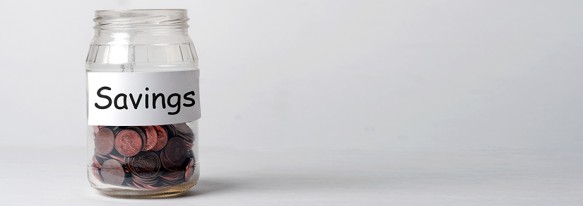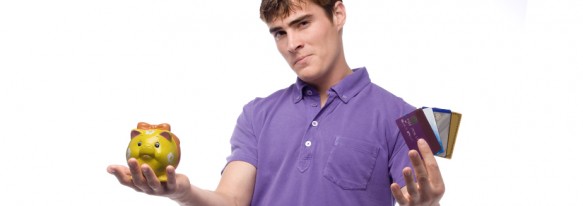


Saving With Debt
When in debt, the last strategy we think about is saving money. However, it is possible to create some savings for yourself while you’re in repayment of debts. In fact, many financial experts not only agree with this strategy, but also strongly encourage it, suggesting that only a quarter of your income should be put towards your debt. These experts also state that not only should your savings be a key component of your month to month budget, but that your savings should be a source of money that you do not dip into, as you continue to build up that savings over time. The following are a few key tips you can use to beef up your savings while at the same time decreasing what you owe.
Pay Yourself First
Oftentimes when it comes to budgeting and reducing debt, the last person on our list to pay is ourselves. By not considering paying ourselves, we can quickly leave our savings account idling, even though we may be chipping away quite successfully at debt repayment. As a tip, try reversing this trend by making sure to always pay yourself first. It takes practice and constant reminders, but it can pay dividends down the road. Also, through your vigilance of first and foremost paying yourself, not only will you see your savings account grow as well as your investments flourish, but you could very well rocket your overall financial situation into previously unheard of levels, perhaps even ending up a millionaire!
Limit Bills and Expenses
Another method to save money for yourself even though you may be in debt, is to limit bills and expenses. Specifically, in terms of your monthly budget, try to limit the amount of money you put into bills and day to day expenses by around fifty percent, while at the same time put only twenty five percent into your monthly debt repayments. Of course you have important and time sensitive living expenses such as rent and mounting credit card payments, thus perhaps a change in how you approach your daily life is in order. For example, maybe by moving into a home or apartment with lower rent you can decrease your monthly expenses. Perhaps you also need to cease using your credit cards for a while until you have a better handle on that aspect of your debt. One other option, though likely the least attractive one, may be to consider filing for bankruptcy. In truth, making a purposeful setback such as bankruptcy may be just the ticket, down the road, in order to financially get back on your feet. Even though filing for bankruptcy will indeed negatively affect your credit rating, the silver lining will be that any further interest growth will cease until you’ve righted the ship again.
Invest
 In terms of saving while in debt, another strategy is to begin thinking about your money by asking the question, “If I purchase this or that, will that purchase end up saving me money or earning me money? Or will it simply drain my funds?”. To put it another way, “If I buy these DVDs, will it be a wise money decision, or am I better off putting that money into, say, an investment fund?”. Of course, investment is one of the last things we think about when we are trying to pay off debts but doing so can actually be a smart way to save money as you try to pay down debts. Do your research and take a look at your investment options. You may find that opening up an investment portfolio, for instance, is an easy money saving strategy you completely overlooked. Even with your daily expenses, you can ask yourself, “Is it worth it to buy an expensive gym membership when I can easily go outside and exercise for free?”
In terms of saving while in debt, another strategy is to begin thinking about your money by asking the question, “If I purchase this or that, will that purchase end up saving me money or earning me money? Or will it simply drain my funds?”. To put it another way, “If I buy these DVDs, will it be a wise money decision, or am I better off putting that money into, say, an investment fund?”. Of course, investment is one of the last things we think about when we are trying to pay off debts but doing so can actually be a smart way to save money as you try to pay down debts. Do your research and take a look at your investment options. You may find that opening up an investment portfolio, for instance, is an easy money saving strategy you completely overlooked. Even with your daily expenses, you can ask yourself, “Is it worth it to buy an expensive gym membership when I can easily go outside and exercise for free?”
Conclusion
Overall, trying to increase your wealth while being in debt is definitely not an easy task. However, it is much more possible than we may think at first . One of the main obstacles holding us back from increasing our wealth, whether in debt or not, is the psychological side of money; the mentality of failure. So, if your financial situation is grim at present, do not fret. Realize that the options are out there, such as the ones discussed above, to help you climb out of the situation. Also, once you do decide to take control, and then begin to see real results, no matter how small at first, the sense of empowerment and confidence will only further push you to a level of financial liberty you never thought you could reach!













